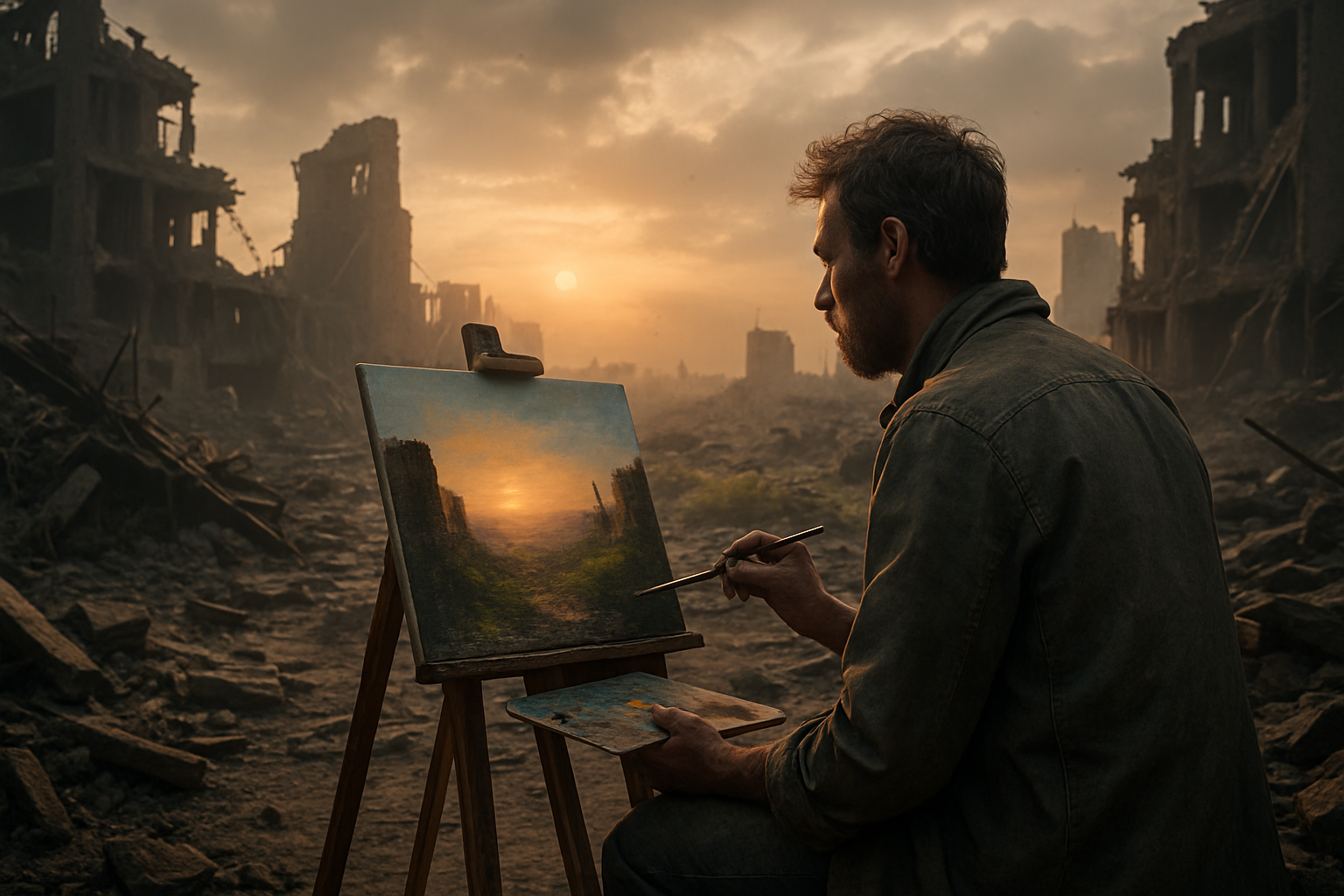"Artistic Resurgence in Post-Apocalyptic Cinema: A New Dawn"
In a world increasingly concerned with its own end, the post-apocalyptic genre in cinema has seen a tremendous rise in popularity. Yet, beneath the surface of destruction and desolation, a new artistic wave is emerging, adding depth and complexity to the genre. This article will delve into this nascent movement, highlighting its origins, significance, and the way it is reshaping the cinematic landscape.

Genesis of a New Artistic Expression
The post-apocalyptic genre, wrought with dystopian landscapes and survivalist narratives, has been a part of cinema since its inception. However, the recent upsurge in environmental concerns and socio-political instability has breathed new life into the genre. Filmmakers are now using this platform to address these issues creatively, leading to the emergence of a unique artistic expression.
The Current Scenario
The face of post-apocalyptic cinema is changing rapidly. The genre, once dominated by tales of human despair and survival, is now exploring narratives focusing on hope, resilience, and the potential for rebirth. Movies like “The Road” and “Children of Men” have paved the way for films that deal with the aftermath of an apocalypse in a more nuanced manner.
The Impact and Reception
The artistic transformation in post-apocalyptic cinema has had a profound impact on audiences and critics alike. The genre’s shift from pure entertainment to thought-provoking social commentary has been well received. The ability to convey complex messages about human nature and society amidst chaos and destruction has elevated the genre to a new level of artistic expression.
The Future Prospects
The future of post-apocalyptic cinema looks promising. With filmmakers pushing the boundaries of creative expression within the genre, audiences can expect a continued exploration of complex themes and narratives. The genre’s ability to mirror current societal fears and hopes ensures its relevance and appeal in the future.
Conclusion
Post-apocalyptic cinema, once a playground for dystopian fantasies, is undergoing a profound artistic transformation. This evolution, marked by a shift towards nuanced narratives and thematic depth, has not only elevated the genre but also added a new layer of complexity to cinematic storytelling. As we continue to grapple with our own fears and hopes for the future, this genre serves as a poignant reflection of our collective consciousness.




